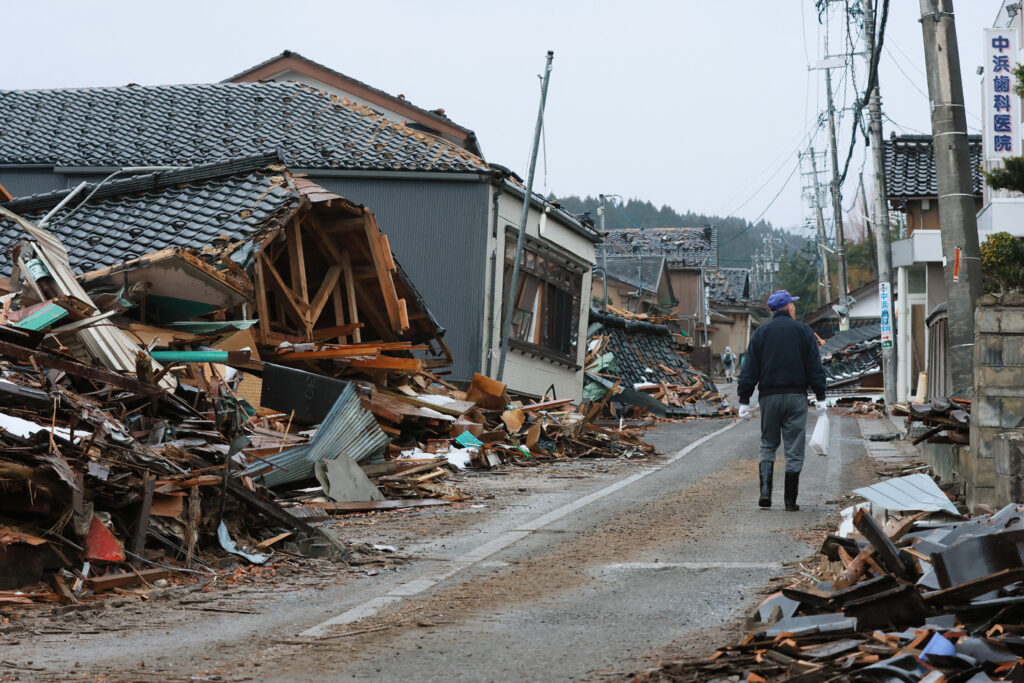
- ARAB NEWS
- 15 Jul 2025

TOKYO: The Citizens’ Nuclear Information Center (CNIC) warns that the Jan. 1 Noto Peninsula earthquake showed that a “repeat of the Fukushima nuclear disaster is all too possible.”
The deadly earthquake on the Japan Sea coast on New Year’s Day once again showed how fragile Japan’s defenses are against nature. The CNIC pointed out that the condition of the roads after the quake and the slow government response “gives us a renewed sense of the terror of nuclear earthquake disasters.”
It says if a severe accident had occurred at the nearby Shika Nuclear Power Station and radioactivity had been released into the environment, post-earthquake evacuation would have been extremely difficult and a radiation leak would have prevented aid from reaching the stricken region.
The power plant, however, was idle at the time and there was no damage from the earthquake or the relatively minor tsunami that followed. But the sea rose by 3 meters in front of the nuclear plant and as many as 18 of the plant’s 116 monitoring posts failed to function.
Water from spent fuel pools spilled over – as it did at theKashiwazaki-Kariwa nuclear power plant in nearby Niigata Prefecture – the coolant pumps stopped temporarily, some of the pools’ testing equipment dropped down from where they were installed, and piping in transformers receiving external power was broken, allowing oil to leak out. This resulted in a power outage and some equipment becoming inoperable.
The standby power units kicked in, but complete restoration of external power is expected to take a half year or more.
The CNIC warns that the government’s decision to restart nuclear power plants, most of which have been idle since 2011, could come with a dangerous cost.
TEPCO, the operator of the damaged Fukushima plant, has been given the go-ahead to restart the Kashiwazaki-Kariwa Nuclear Power Plant in nearby Niigata Prefecture and the Nuclear Regulation Authority (NRA) of Japan approved the extended operation of the nuclear power plant in Satsuma-Sendai City toallow it to operate for a total of 60 years.
CNIC also reports that the Tohoku Electric Power Co. had been planning to restart its Onagawa Unit 2 reactor on September 2 last year but announced a delay for “safety-related construction.”
Prior to the Great East Japan Earthquake of 2011, 54 nuclear reactors were in operation in Japan, supplying approximately 30percent of the country’s electric power.